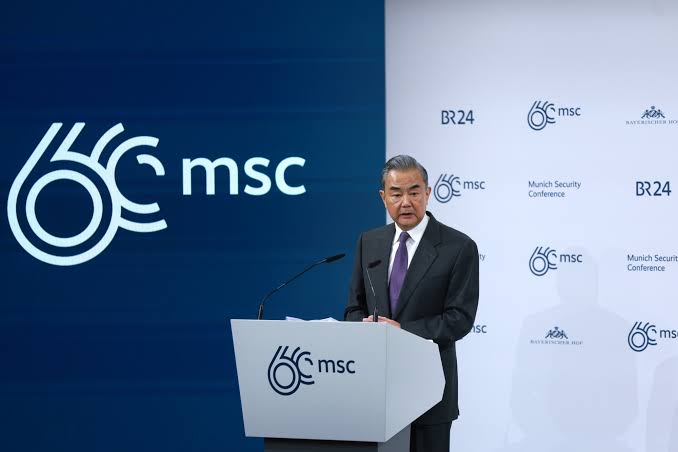Chinese FM Rebukes Xinjiang-Related Lies at Munich Security Conference

Munich, The Gulf Observer: On February 18th, Chinese Foreign Minister Wang Yi unequivocally refuted allegations of genocide and forced labor in Xinjiang during his response to questions at the Munich Security Conference.
Following his keynote speech at the “China in the World” session, Wang, a member of the Political Bureau of the Communist Party of China Central Committee, addressed various queries, particularly those related to Xinjiang.
Wang denounced the proliferation of lies about Xinjiang by certain political entities, asserting that the accusations of genocide are baseless. He emphasized the significant growth of the Uygur population in the Xinjiang Uygur Autonomous Region, which has increased from over 3 million to more than 12 million. Additionally, he highlighted the remarkable improvement in the average life expectancy of people of all ethnic groups in Xinjiang, rising from 30 years to 75.6 years.
Citing examples, Wang presented the protection of religious freedom in Xinjiang, emphasizing the existence of ample religious sites for Muslims and the government’s financial support for the repair and maintenance of mosques. He noted the bilingual nature of government documents and store signs and the commitment to preserving and passing on the languages and cultures of various ethnic minorities, including the Uygurs.
Addressing accusations of forced labor, Wang questioned the legitimacy of such claims, highlighting the right of the Uygur people to work and enjoy employment freedom. He characterized such allegations as attempts to undermine China’s development and vilify Uygur-produced products, denying the Uygur people the right to work.
Wang extended an invitation for global friends to visit Xinjiang and witness the reality firsthand, emphasizing that firsthand experiences differ significantly from Western media portrayals.
Attributing the spread of false information about Xinjiang to discomfort and anxiety stemming from China’s rapid development, Wang reiterated China’s right to develop and its commitment to contributing to global progress. He emphasized President Xi Jinping’s vision of a shared destiny for all countries and called for collaboration to build a community with a shared future for mankind.
China’s global perspective and diplomatic goal, as articulated by Wang, underscore the nation’s commitment to rising above differences and fostering global cooperation for the collective development and prosperity of all nations.